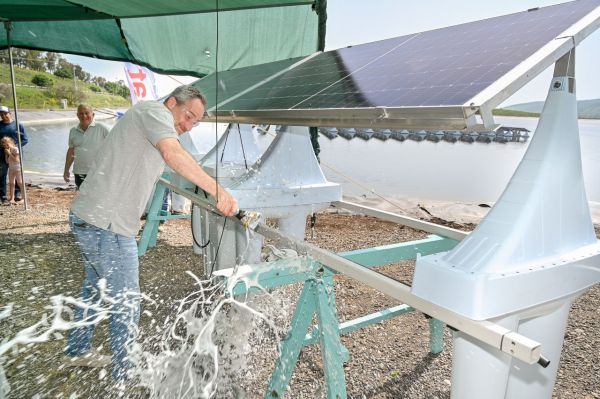Xfloat’s AI sun-tracking system yields a 15% to 20% increase in electricity.
By Pesach Benson, United With Israel
Everyone agrees that solar power is a terrific source of clean energy. Unfortunately, some areas don’t have adequate space for the solar panels.
But Xfloat, a Netanya-based startup, has developed solar panels that float, changing the way people think about the sun for renewable energy.
Israel recently announced a project to test artificially intelligent solar panels floating in the country’s reservoirs. According to the Israeli Innovation Authority (IIA) and Finance Ministry, the project is in cooperation with Mekorot, the national water company.
“The electricity generated this way could be used by everybody, including industrial plants and home consumers, because the process is cheap and clean,” Shir Azaraf, a spokeswoman for the Finance Ministry, told China’s Xinhua news service.
There’s a lot riding on this test. According to EcoPeace MiddleEast, a regional environmental organization, Israel faces a shortfall of around 12,000 acres for solar panels needed to meet its target of a 30 percent share of renewable energy by 2030.
The concept is simple: floating solar modules are mounted on buoyant platforms and deployed in sunlit waterbodies when the conditions are calm. Artificial intelligence allows the panels to track the sun, tilt towards it and adapt to changes water motion and weather — even in extreme conditions.
Xfloat CEO Ran Alcalay told PV Magazine that the AI sun-tracking system yields a 15% to 20% increase in electricity.
As an added bonus, the floating panels are expected to reduce evaporation.
“Mekorot has a lot of uses for electricity every day and this fact may help the company and may dramatically lower the electric costs,” Zvica Goltzman, VP of the Growth Division at the Israel Innovation Authority, told the NoCamels website. “Of course, it’s also supposed to give better water rates to the customers.”
The project is included in a national program in which four Israeli startup companies were selected by the IIA to test innovative technologies at government sites with state support of up to 50%
The other technologies chosen are an automated platform for managing bus terminals, an online sign language translation on trains, and an AI drone navigation without GPS.
